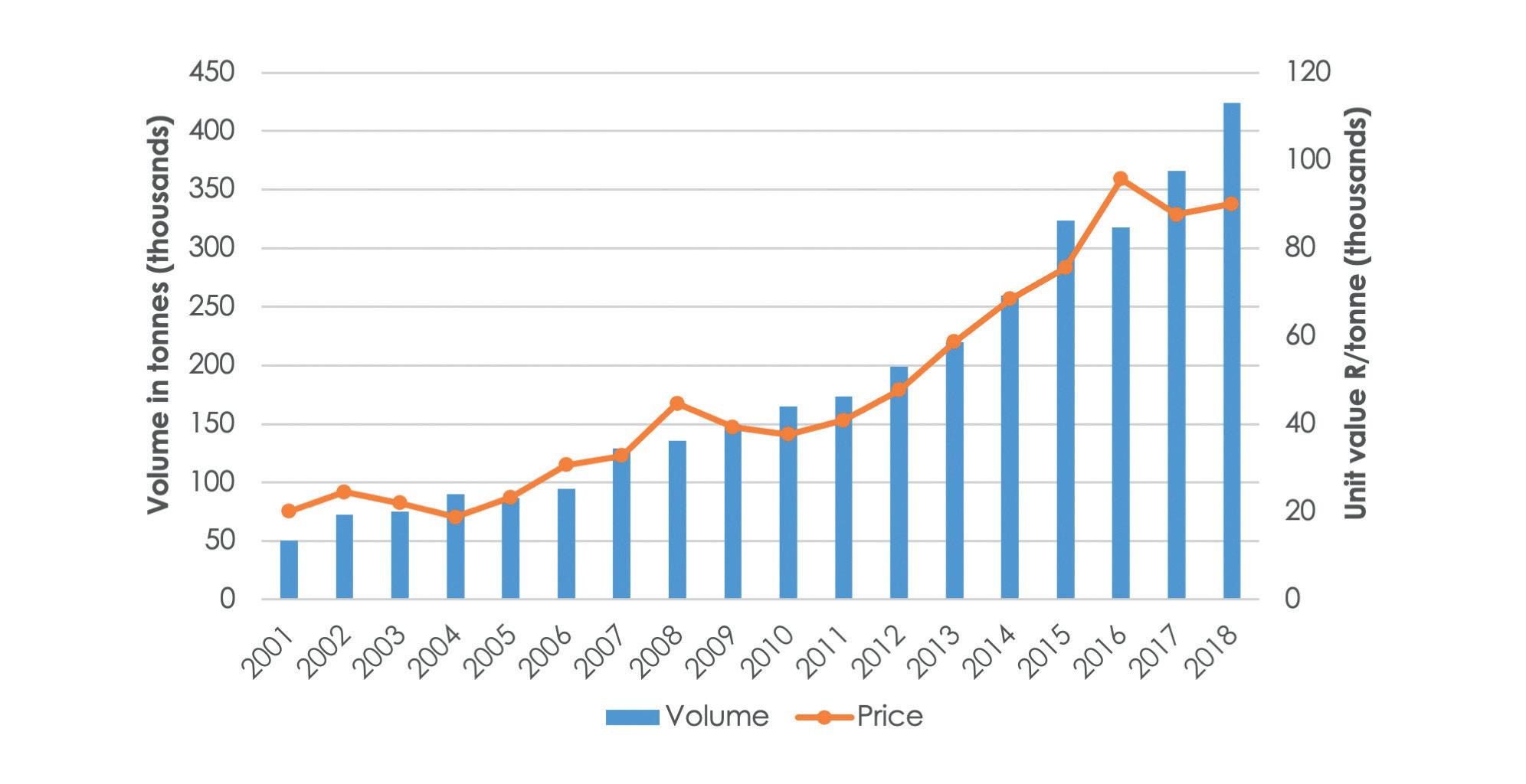
2 minute read
Agricultural youth development contributes to employment
by WCDOA pubs
by Gladys Langa, gladysl@elsenburg.com
AAgriculture has been regarded as a career field not appealing to young people. It is often not the first choice of study due to certain perceptions about the agricultural sector. Young people are leaving the agricultural sector for better remuneration in other sectors. In most rural communities when children complete their education, they do not like to stay in their home communities to make an effective contribution to agricultural development there. This is because they face various obstacles such as lack of employment in the rural areas, poor infrastructure and lack of prospects for their further career development. In some instances, young people find it difficult to pursue mathematics and science due to wrong perceptions and lack of support and career guidance. To solve this problem and to make agriculture attractive and a career of choice to young people, commitment, support and motivation of young people are required. Only then can they make their maximum contribution to the agricultural sector. Therefore, investing in skills development is an essential element in improving labour productivity of the youth and can be an important tool for agricultural development.
The Western Cape Department of Agriculture is committed to transform agriculture and make it attractive to young people. Youth development programmes in the department build confidence, motivate young people and promote agriculture as a career of choice, focusing on skills development, job creation and youth empowerment. The youth development programmes in the Western Cape Department of Agriculture include bursaries, scholarships, the Young Professional Persons Programme (YPP) and internships.
The department awards bursaries to students studying full time at a higher educational institution towards obtaining a South African Qualifications Authority (SAQA) registered qualification in critical and specialised fields. The fields of study include but are not limited to soil science, irrigation engineering, resource economics, plant pathology, agronomy, and many other agricultural studies. The scholarships are for high school learners, offering them the opportunity to complete their matric with mathematics and science and giving them the opportunity for further studies in scarce and critical agricultural skills.
The YPP is a development programme to empower previously disadvantaged individuals from designated groups as defined in terms of the Employment Equity Act. This programme includes white females and people with disabilities. Applicants must have been accepted by a recognised higher education institution for honours, master’s or doctorate studies.
Thus far, the department has awarded 164 bursaries to youth from predominantly rural areas. This includes 84 external bursaries, 10 YPP bursaries, 6 scholarships, and 64 internal bursaries.
In addressing youth unemployment, in particular during the COVID-19 pandemic, the department provided opportunities for unemployed matriculants, students and graduates through an internship programme.
The Western Cape Department of Agriculture together with the National Department of Agriculture initiated a project for the placement of unemployed graduates through the Comprehensive Agriculture Support Programme (CASP). This programme placed 120 unemployed graduates with agriculture-related qualifications on relevant farms and enterprises within the agricultural value chain to reduce the unemployment rate among youth and further provide them with the required practical hands-on experience.
Benri Saul was awarded a bursary for a diploma in agriculture at Elsenburg College and an advanced diploma in agricultural extension at the Central University of Technology (CUT). He was subsequently appointed as a CASP graduate intern for 24 months. He is currently permanently employed in the department as an agricultural advisor in Clanwilliam.
Bongiwe Peter was awarded a bursary for a diploma in agriculture at the Cape Peninsula University of Technology (CPUT). She is permanently employed as Admin Clerk: Quality Control at the departmental vet lab.

Adriano Jacobs started as a Premier's Advancement of Youth (PAY) intern and was awarded a bursary to study BCom in economics at the University of the Western Cape. He was appointed as a CASP graduate intern. He is currently permanently employed as an accounting clerk in the department.

Ayabonga Sibulali was appointed as a CASP graduate intern placed within the department. He is currently employed as Agricultural Economist: Macro and Resource Economics.

Scan this QR Code to explore agri-career opportunities











